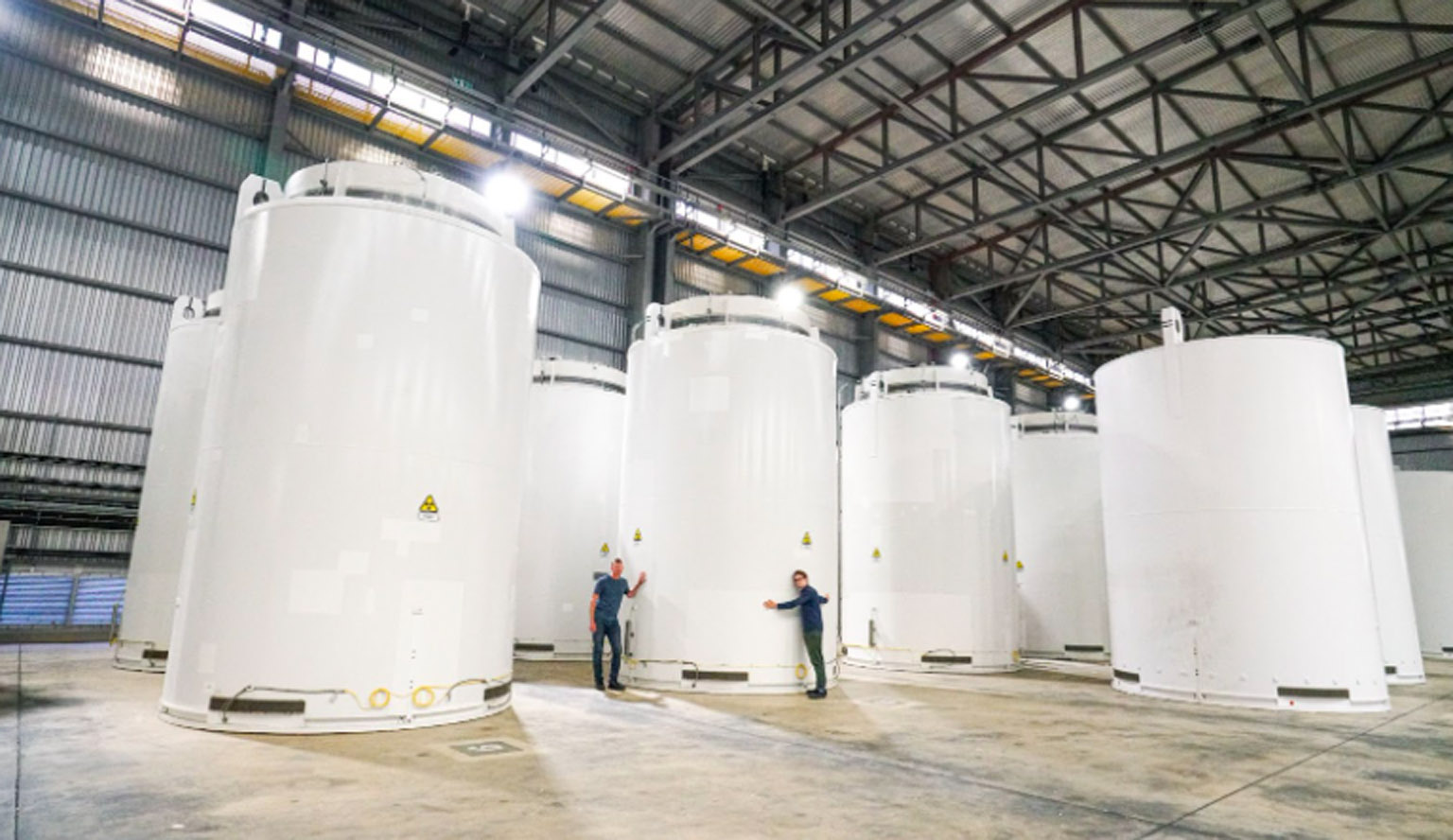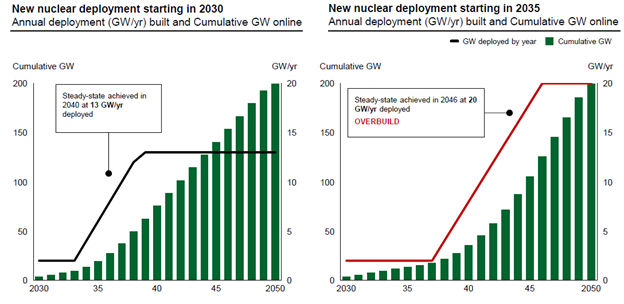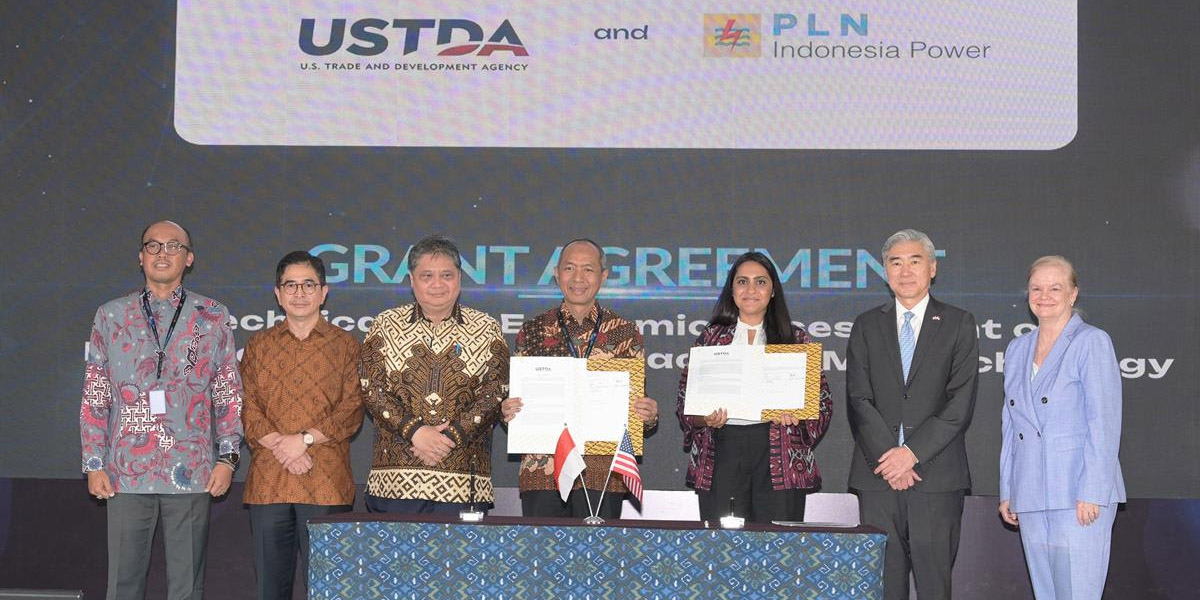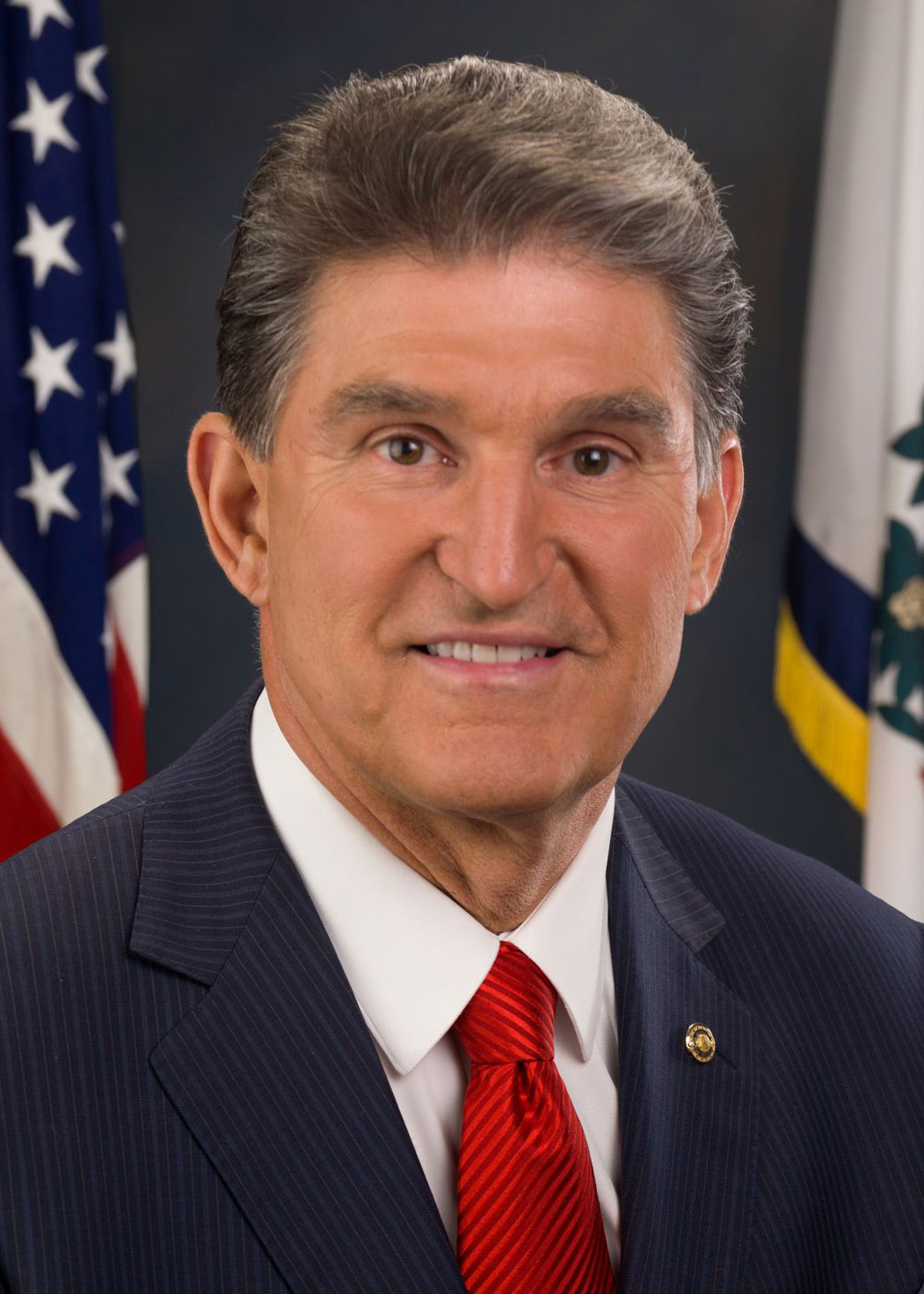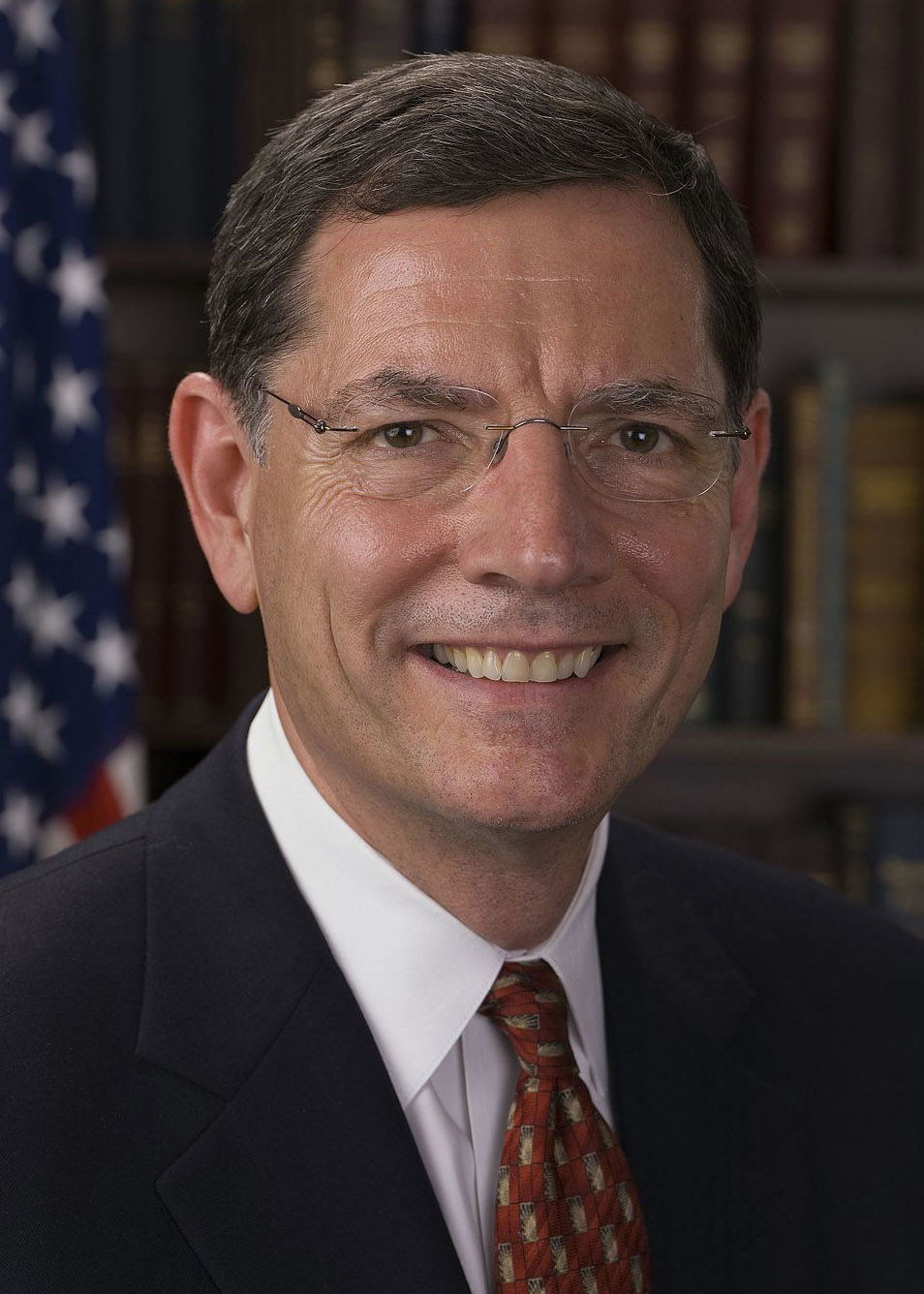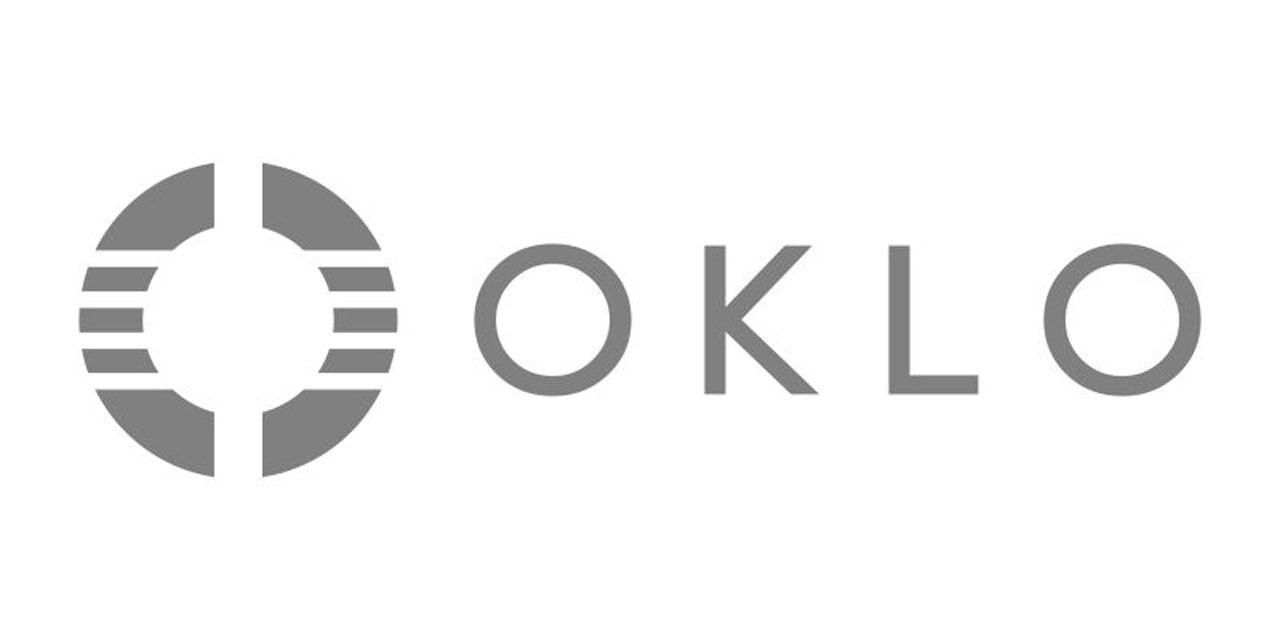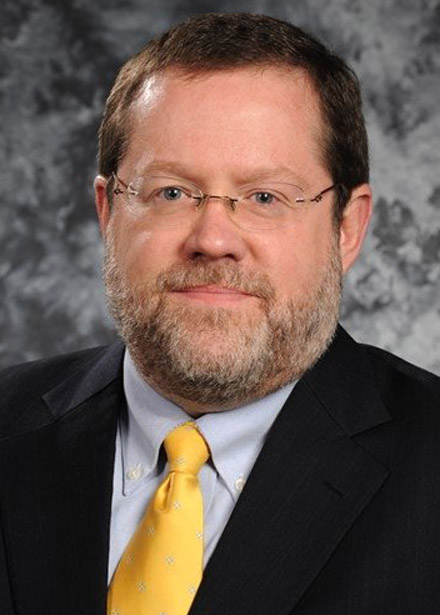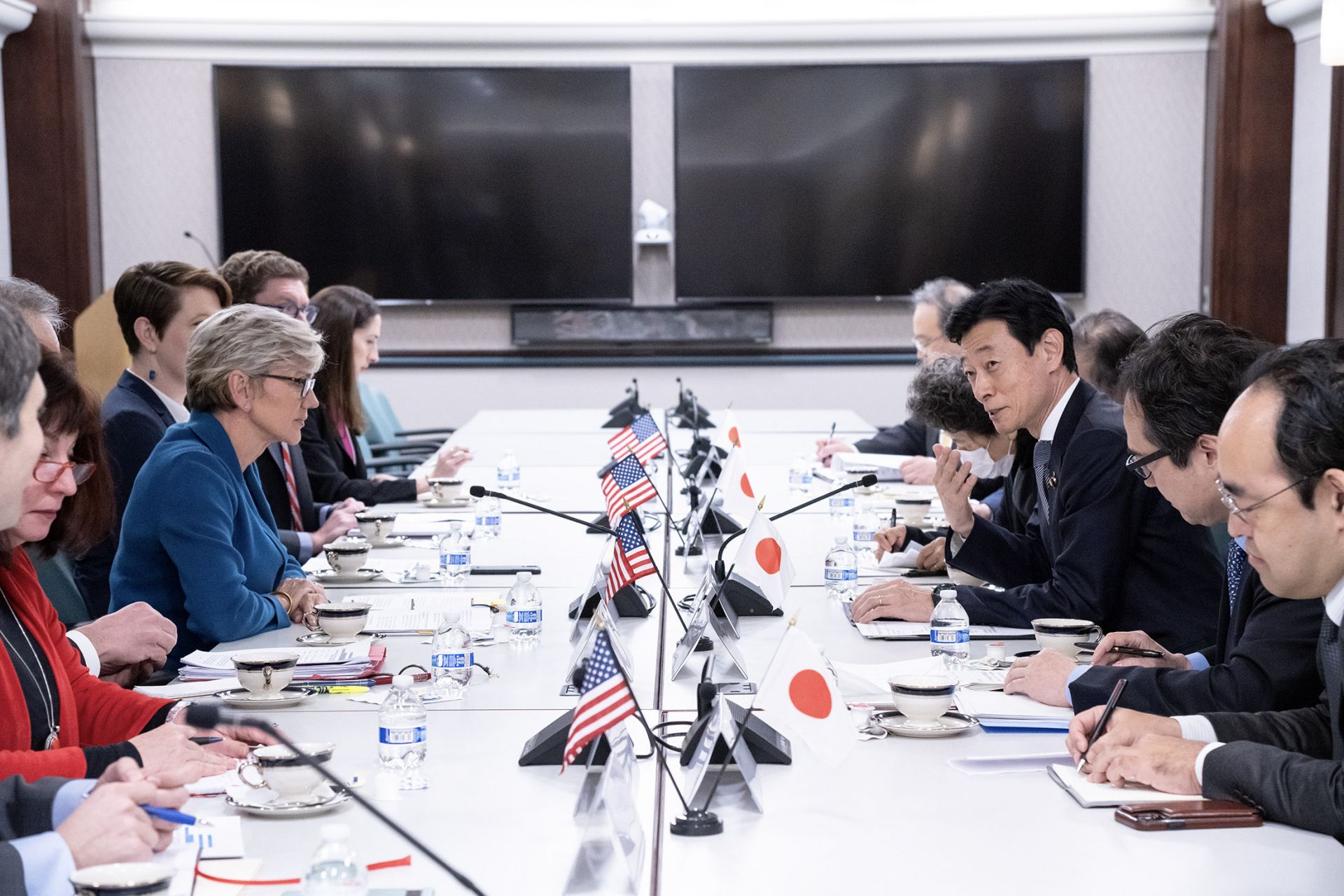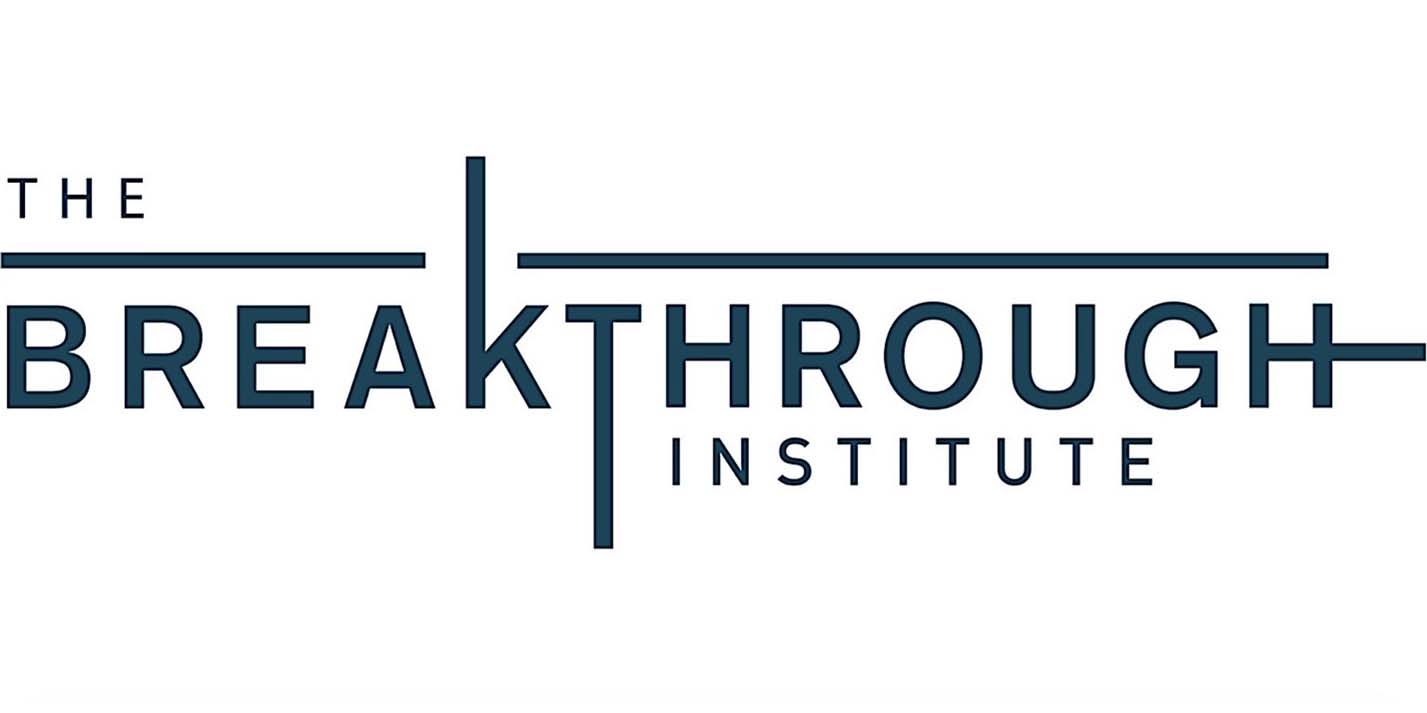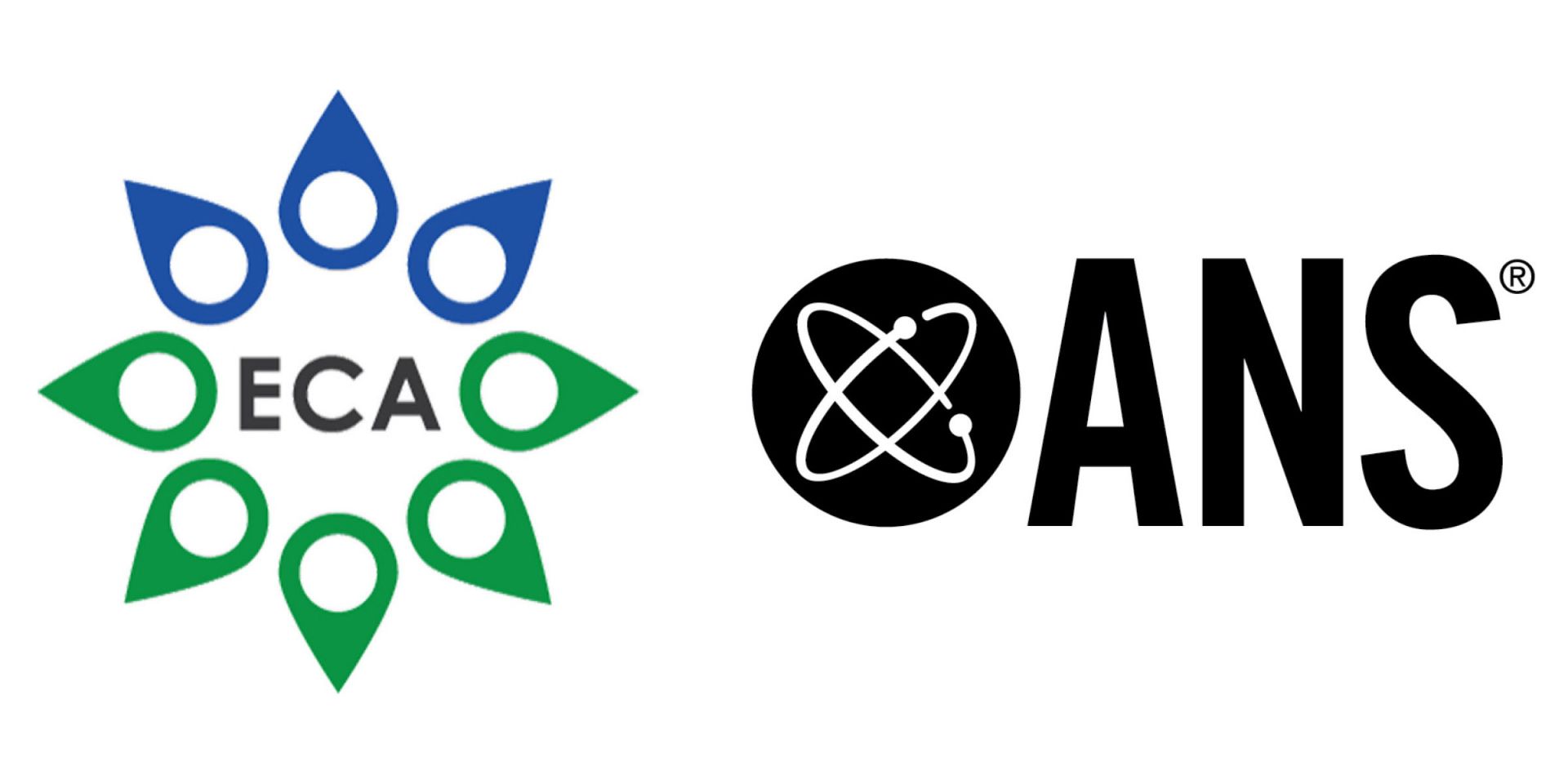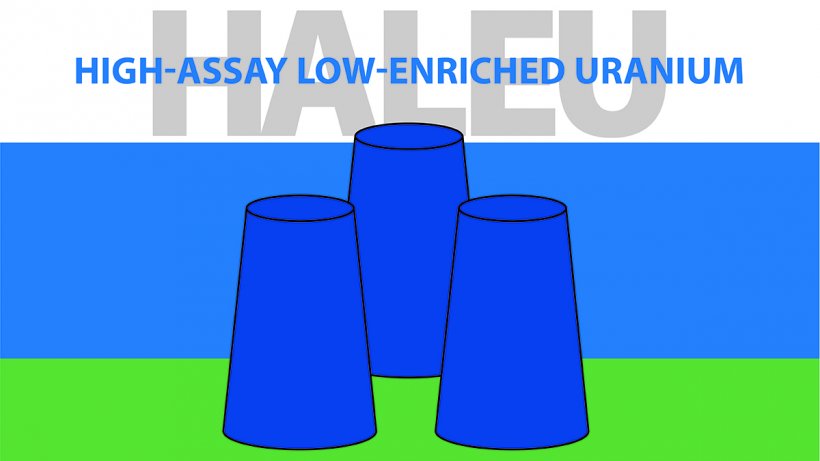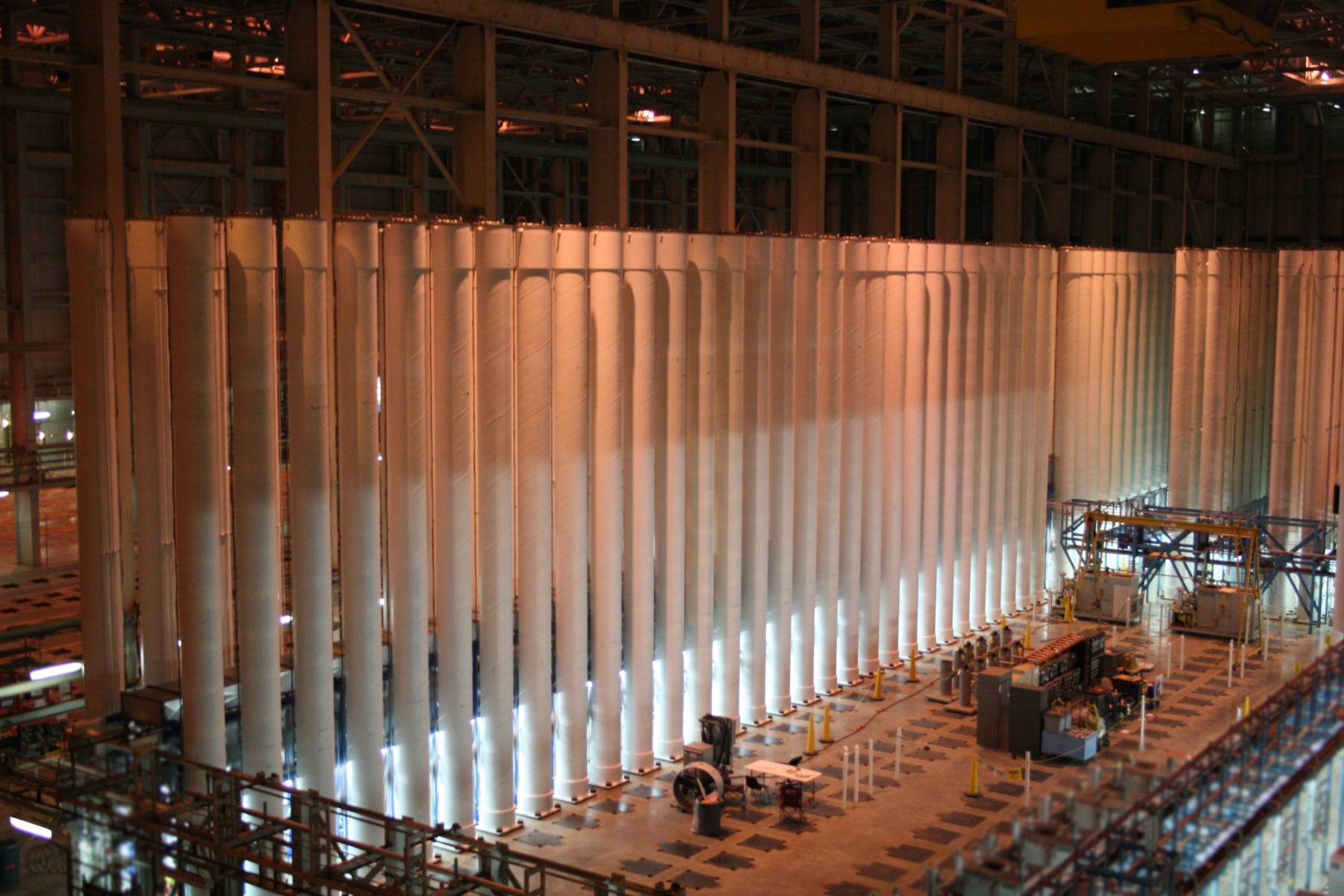Representatives of six nuclear organizations sign a declaration in Sapporo, Japan. Seated, left to right, are George Christidis (representing CNA chief executive officer John Gorman), Shiro Arai, Maria Korsnick, Tom Greatrex, Yves Desbazeille, and Sama Bilbao y León. (Photo: World Nuclear Association)
G7 governments should support life extension for today’s power reactor fleet, restart operable units, and accelerate the deployment of advanced reactors, states a joint declaration issued April 16 at the Nuclear Energy Forum, a first-of-its-kind colloquy held on the margins of the G7 Ministers’ Meeting on Climate, Energy and Environment in Sapporo, Japan.
Report author Mark Lynas and RePlanet’s Joel Scott-Halkes stand next to a canister of spent nuclear fuel at the Sizewell plant in the United Kingdom. (Photo: RePlanet)
A new report from the environmental advocacy group RePlanet makes the case for recycling used nuclear fuel for use in advanced power reactors. According to the report, What a Waste: How fast-fission power can provide clean energy from nuclear waste, by using current inventories of used fuel and depleted uranium stocks in Europe and the United Kingdom, fast breeder reactors could generate between 600 and 1,000 years of carbon-free electricity for the entire European Union.
These graphs illustrate how rapidly scaling the nuclear industrial base would enable nearer-term decarbonization and increase capital efficiency, versus a five-year delay to reach the same 200 GW deployment by 2050. (Source: DOE, Pathways to Commercial Liftoff: Advanced Nuclear, Fig. 1)
The Department of Energy released Pathways to Commercial Liftoff: Advanced Nuclear earlier this month. It is one of the first in a series of reports on clean energy technologies and the private and public investments needed to overcome hurdles to full-scale deployment. The report makes a clear case for investment in nuclear power and challenges potential investors and operators to move beyond the current “wait and see” stalemate and generate “a committed orderbook . . . for 5–10 deployments of at least one reactor design by 2025.”
Dignitaries assemble after the signing of a memorandum of agreement to help Indonesia develop a nuclear energy program. Among those at the signing were Indonesia's minister for economic affairs Airlangga Hartarto, U.S. ambassador to Indonesia Sung Y. Kim, and U.S. Department of State principal deputy assistant secretary Ann Ganzer. (Photo: State Dept./Erik A. Kurniawan)
The United States and Indonesia have announced a strategic partnership to help the latter nation develop its nuclear energy program, supporting its interest in deploying small modular reactors to meet energy security and climate goals.
A view of the completed demo cascade. (Photo: Centrus)
Centrus Energy announced February 9 that it has finished assembling a cascade of uranium enrichment centrifuges and most of the associated support systems ahead of its contracted demonstration of high-assay low-enriched uranium (HALEU) production by the end of 2023. When the 16-machine cascade begins operating inside the Piketon, Ohio, American Centrifuge Plant, which has room for 11,520 machines, it will be the first new U.S.-technology based enrichment plant to begin production in 70 years.
U.S. secretary of energy Jennifer Granholm and Japan’s minister of economy, trade, and industry Yasutoshi Nishimura lead energy discussions on January 9 in Washington, D.C. (Photo: DOE)
Researchers at Idaho National Laboratory have completed initial testing on a newly developed fuel test capsule that is expected to provide crucial performance data for sodium-cooled fast reactors. The Department of Energy announced on January 12 that the series of fuel testing experiments being carried out now at INL’s Transient Reactor Test Facility (TREAT) was developed through a joint project between the United States and Japan.
These gas centrifuges operated in the Piketon facility from 2013 to 2016 as part of a 120-machine low-enriched uranium demonstration cascade. (Photo: Centrus Energy)
Centrus Energy confirmed on December 1 that its wholly owned subsidiary American Centrifuge Operating signed a contract with the Department of Energy, which was first announced on November 10, to complete and operate a demo-scale high-assay low-enriched uranium (HALEU) gaseous centrifuge cascade.
From left: Christina Leggett (Booz Allen Hamilton), Morris Hassler (IB3 Global Solutions), Everett Redmond (Oklo), Andy Griffith (DOE-NE), Ben Jordan (Centrus), Stephen Long (GLE), and Magnus Mori (Urenco).
Whether commercial demand for high-assay low-enriched uranium (HALEU) fuel ultimately falls at the high or low end of divergent forecasts, one thing is certain: the United States is not ready to meet demand, because it currently has no domestic HALEU enrichment capacity. But conversations happening now could help build the commercial HALEU enrichment infrastructure needed to support advanced reactor deployments. At the 2022 American Nuclear Society Winter Meeting, representatives from three potential HALEU enrichers, the government, and industry met to discuss their timelines and challenges during “Got Fuel? Progress Toward Establishing a Domestic US HALEU Supply,” a November 15 executive session cosponsored by the Nuclear Nonproliferation Policy Division and the Fuel Cycle and Waste Management Division.
![]() Here is a recap of industry happenings over the past months:
Here is a recap of industry happenings over the past months:


